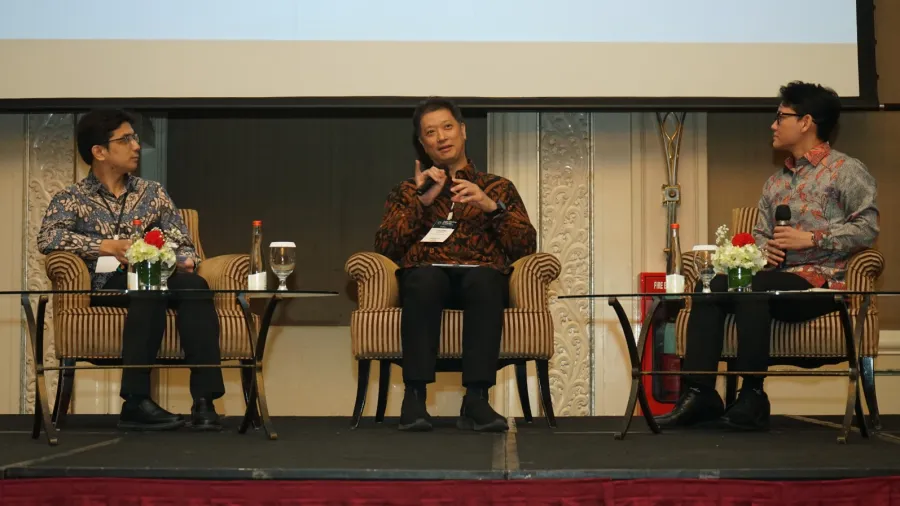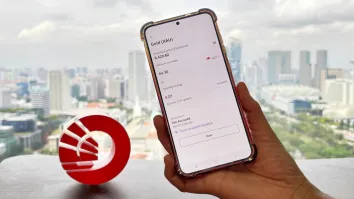
BCA sets benchmark in Indonesia’s microfinance sector
Innovative approaches reflect the bank’s commitment to pushing financial inclusion and fostering economic growth.
MICROFINANCING proved to be most inviting at the recent Asian Banking and Finance Forum held in Indonesia, with senior executives from PT Bank Central Asia Tbk (BCA) hugging the limelight at the Shangri-La Jakarta on 14 May.
BCA’s Senior Vice President Tjoeng Haryanto and Vice President Feterli Marie formed a tandem of rich insights and strategies to empower micro, small, and medium enterprises (MSMEs) in Indonesia.
Discussing how BCA adapts its approach to better serve this crucial segment, they revealed an integrated and comprehensive strategy to foster economic growth through financial inclusion.
“At BCA, aligning with our vision to be the preferred bank serving the community and a vital pillar in Indonesia’s economy, we focus on developing MSMEs,” said Tjoeng.
Anchoring on the essential role of MSMEs in turning the wheels of the economy during the pandemic, the BCA executive gave due credit to the sector’s contribution to Indonesia’s resilience.
“We understand that our MSMEs have diverse business sectors, from remote agricultural areas to urban centres like Jakarta. This diversity requires tailored solutions to meet their specific needs,” Tjoeng stressed.
To address these needs, BCA employs a three-pillar strategy that encompasses banking solutions, trading, and funding.
Elaborating on this approach, Feterli drove the point of the bank’s efforts to enhance accessibility and convenience for micro SMEs. “One of our key products for banking solutions is now available on the Playstore, allowing micro SMEs to apply for Qris online without visiting branches. This simplifies the process for our customers and ensures they have easy access to financial services,” he explained.
Technology in microfinance solutions
Guiding the discussion, Hans Canggadibrata of BCG drew more insights from the panel speakers on the crucial role of technology in microfinance solutions for small-scale enterprises.
Acknowledging technology’s pivotal role in BCA’s drive to make microfinance more accessible and cost-effective, Feterli said: “We believe technology is a gateway to more opportunities.”
He revealed that digital integration is part of the bank’s broader strategy to create an ecosystem that supports MSMEs from transactions to financing. “Our M2M (Machine-to-Machine) processing room allows customers to fill out credit applications online, which are directly integrated with our credit system, ensuring real-time processing,” he explained.
Tjoeng added that BCA is building a digital ecosystem to support MSMEs more comprehensively. “We have created a journey from transactions to financing. As MSMEs transact more with us, we can analyse their cash flow and provide more accurate credit assessments,” he said.
This method ensures transparency and efficiency, key to fostering trust and reliability amongst MSMEs.
One of the standout features of BCA’s microfinance solution is its focus on simplifying and expediting the credit application process.
By leveraging advanced data analytics and automation, BCA can offer tailored credit products that match the unique needs of each MSME.
This approach not only speeds up the approval process but also reduces the administrative burden on small business owners, allowing them to focus more on growing their businesses rather than getting bogged down by paperwork.
Expanding physical and digital reach
To overcome geographical barriers and improve accessibility, BCA is also expanding its physical presence in rural areas.
“We’ve opened branches in KCP Merauke, Maumere, Sibolga, and Labuan Bajo to be closer to our customers,” Feterli told the Jakarta forum.
Also, partnerships under the Kredit Usaha Rakyat (KUR) programme with the government help extend BCA’s reach.
Given that KUR refers to working capital loans or investments to MSMEs and cooperatives in the field of business that are productive and viable but not yet bankable, such partnerships ensure that even the smallest enterprises in remote areas have access to essential financial services.
The BCA executives also cited how they tap city or district minimum wage earners to events like UMK Invest in order to facilitate e-commerce participation for MSMEs, further broadening their market reach.
With all these, BCA emphasises that maintaining a healthy repayment rate is crucial for the sustainability of its microfinance initiatives. This is why Tjoeng underscored the importance of understanding the customer’s repayment capacity through detailed transaction monitoring.
“We analyse their transaction history and external loan portfolios to ensure they are qualified for credit. For micro-businesses lacking formal financial statements, we sometimes rely on alternative documentation of their revenue streams,” he said.
This approach allows BCA to assess creditworthiness accurately, balancing accessibility with financial stability.
Transparency and growth
BCA’s commitment to transparency and fair treatment is evident in its loan processes. “In our loan segment, from corporate to micro, we declare all terms as per regulations, especially for products like KUR,” Tjoeng told forum guests.
He said their bank provides clear information about loan terms and conditions, ensuring that customers are well-informed and treated fairly. “We also give notifications about the status of their loan applications, maintaining transparency throughout the process,” he added.
The dedication to the MSME sector as exemplified by BCA has proven to drive significant growth and is evident in its strategic initiatives. As of December 2023, BCA's microfinance loan portfolio expanded by 13.4%, reaching IDR 119 trillion. The bank has introduced digital banking solutions, such as Qris, accessible online to simplify financial transactions for MSMEs.
To further streamline loan processing, BCA established Centra Bisnis UMKM and SME units. In addition, BCA has extended its physical reach by opening new branches in rural areas including KCP Merauke, Maumere, Sibolga, and Labuan Bajo.
Collaborations with organisations like LP3H and HALAL provide crucial certifications and training, helping MSMEs enhance their market reach and improve management practices. These efforts highlight BCA’s commitment to ensuring that even the smallest enterprises have the necessary tools to succeed.
Looking ahead, BCA’s comprehensive approach to supporting MSMEs unquestionably fosters economic growth through financial inclusion.
By leveraging technology, expanding physical reach, and providing tailored solutions, BCA is setting a benchmark in the microfinance sector.
This multi-faceted strategy not only supports the growth of MSMEs but also strengthens Indonesia’s economic fabric, showcasing BCA’s role as a pivotal player in allowing the country’s small-scale enterprises and new entrepreneurs to thrive.

















 Advertise
Advertise












